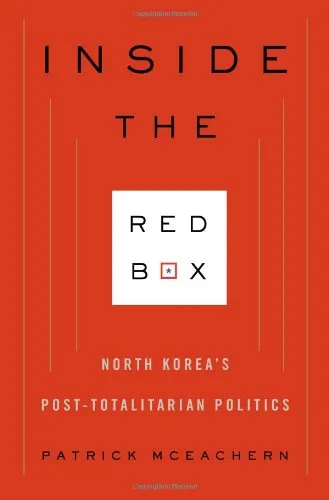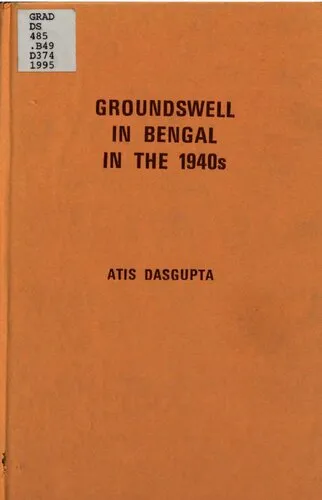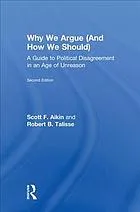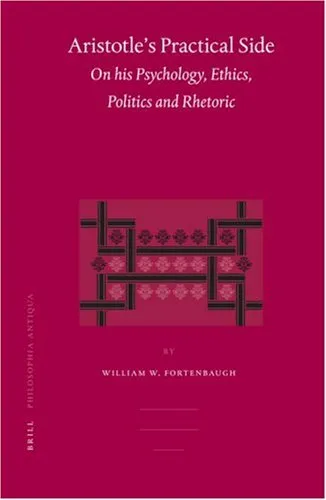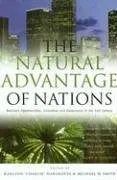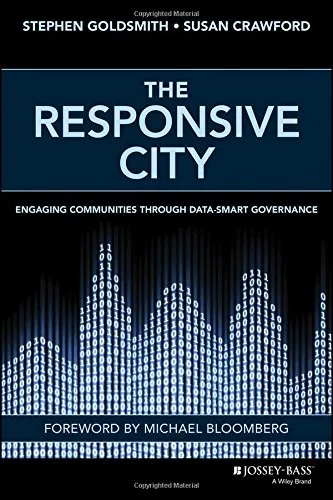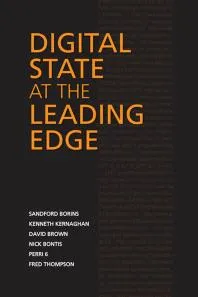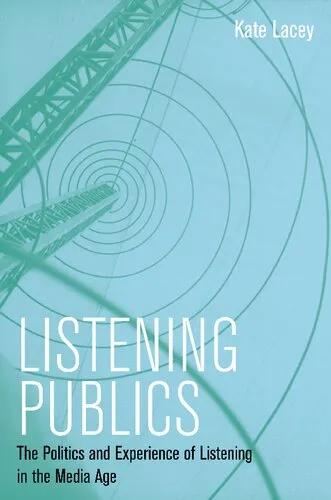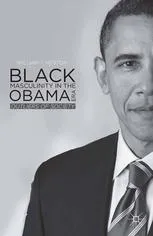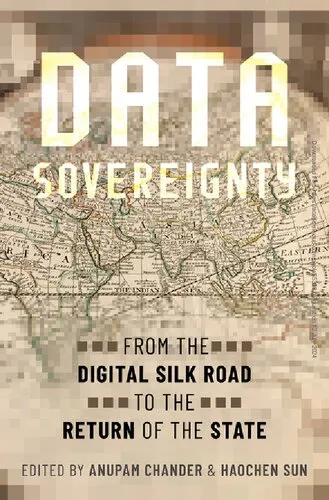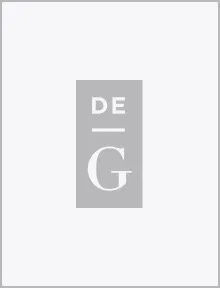Inside the red box : North Korea's post-totalitarian politics
4.0
Reviews from our users

You Can Ask your questions from this book's AI after Login
Each download or ask from book AI costs 2 points. To earn more free points, please visit the Points Guide Page and complete some valuable actions.Related Refrences:
Introduction
"Inside the Red Box: North Korea's Post-Totalitarian Politics" by Kim Chŏng-il and Patrick McEachern delivers an unparalleled analysis of the enigmatic political system governing one of the world’s most secretive states—North Korea. The book meticulously dismantles the externally perceived monolith of North Korean politics, exposing a complex matrix of competing institutions, policy priorities, and leadership dynamics. This insightful exploration challenges the prevailing perceptions of North Korea as a purely totalitarian society by presenting it instead as a post-totalitarian state that has evolved and adapted to the exigencies of modern governance.
Combining theoretical precision with empirical rigor, the authors provide a rare glimpse into the inner workings of one of the most enigmatic regimes of the 21st century. The book equips readers with tools to analyze leadership, factionalism, and institutional integration within the broader spectrum of its political ecosystem. It is an essential resource for those seeking to understand how the country operates both domestically and on the global stage. Whether you are a scholar, a student, or simply an informed reader, Inside the Red Box promises to reshape your understanding of North Korea’s intricate political structures.
Detailed Summary of the Book
At the book's core is the claim that North Korea should not be easily boxed into stale Cold War definitions of "totalitarianism." Instead, the authors propose the notion of a post-totalitarian political framework, where institutional strategies, the interplay of actors, and decision-making mechanisms have grown more dynamic and less dependent on a singular supreme leader.
Patrick McEachern draws heavily from his professional expertise as a diplomat and political analyst on Korea. The book investigates the framework of policymaking within North Korea by working through the "Three Pillars" of its governance: the Korean Workers’ Party, the State, and the Korean People's Army. These institutions are not passive tools used solely by the leader but participate actively in policy deliberation.
Far from portraying Kim Jong Il or Kim Jong Un as omnipotent autocrats, Inside the Red Box portrays them as constrained leaders who must manage a network of powerful and competing institutions. While the Kim family regime retains ultimate authority, it operates within this larger political environment. The authors utilize rich historical context and a systematic analysis to demonstrate how bureaucratic inertia, factional interests, and internal balancing shape policymaking and leadership survival strategies in surprising ways.
Additionally, the book explores North Korea’s interactions with the outside world, particularly its nuclear ambitions and negotiation tactics. The analysis reveals how external relationships are often the product of institutional interplay rather than unilateral decisions by the leader. This contextualization opens up new pathways for understanding North Korea’s motivations and the feasibility of diplomacy with the regime.
Key Takeaways
- North Korea operates as a post-totalitarian political system where institutions such as the Korean Workers’ Party and the military play significant roles in governance.
- The supreme leader—while central—does not act alone; power dynamics and factional interests influence policymaking.
- The country has adapted its political structure to ensure regime survival, fostering greater inter-institutional rivalry balanced by the Kim family's authority.
- Examining institutional interactions is critical to understanding both domestic policies and foreign policy behavior, including North Korea’s nuclear strategy.
- Conventional analyses based solely on the leader-centric perspective oversimplify the complex workings of the North Korean political system.
Famous Quotes from the Book
"The North Korean regime survives not because it relies on terror or a cult of personality alone, but because it has cultivated institutions that manage economic, political, and military challenges in a uniquely sustainable, albeit fragile, manner."
"Policymaking in the DPRK is less about individual fiat and more about navigating an opaque system of bureaucratic negotiation, institutional inertia, and factional compromise."
"To truly understand North Korea, one must look beyond the man at the top and into the machinery that sustains him."
Why This Book Matters
Inside the Red Box is not only revolutionary in its content but essential in its timing. As international tensions with North Korea continue to rise, policymakers, scholars, and global citizens alike must comprehend the inner workings of this regime to develop informed strategies for engagement. Traditional narratives focused solely on dictatorship or totalitarianism fail to consider the multifaceted institutional dynamics of North Korea, leaving gaps in understanding and policy formulation.
This book is particularly valuable for those who wish to move past superficial analyses and engage in a deeper, more nuanced dialogue about security, diplomacy, and human rights as they pertain to North Korea. By focusing on the intersections of bureaucracy, power, and structural governance, Kim Chŏng-il and Patrick McEachern illuminate the hidden processes within Pyongyang, providing a blueprint for future scholarship. Whether you seek to influence public policy, expand academic discourse, or simply better understand one of the most secretive states in modern history, Inside the Red Box is indispensable.
Free Direct Download
You Can Download this book after Login
Accessing books through legal platforms and public libraries not only supports the rights of authors and publishers but also contributes to the sustainability of reading culture. Before downloading, please take a moment to consider these options.
Find this book on other platforms:
WorldCat helps you find books in libraries worldwide.
See ratings, reviews, and discussions on Goodreads.
Find and buy rare or used books on AbeBooks.
1367
بازدید4.0
امتیاز0
نظر98%
رضایتReviews:
4.0
Based on 0 users review
Questions & Answers
Ask questions about this book or help others by answering
No questions yet. Be the first to ask!
